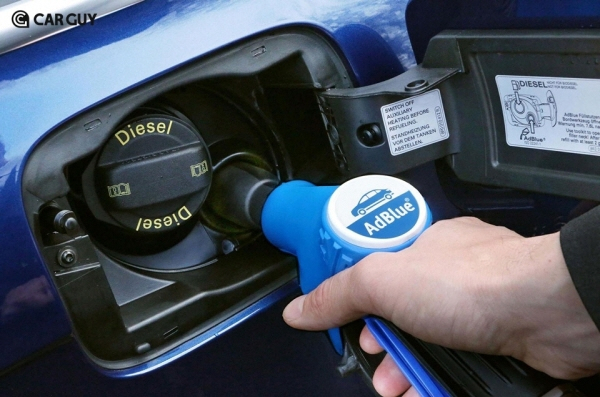Supply chain
Diesel exhaust fluid shortage threatens Korea’s supply chain
Korea ceased production of urea from 2011, relying on imports, mostly from China
By Nov 03, 2021 (Gmt+09:00)
2
Min read
Most Read
LG Chem to sell water filter business to Glenwood PE for $692 million


KT&G eyes overseas M&A after rejecting activist fund's offer


Mirae Asset to be named Korea Post’s core real estate fund operator


StockX in merger talks with Naver’s online reseller Kream


Meritz backs half of ex-manager’s $210 mn hedge fund



A diesel exhaust fluid (DEF) shortage in South Korea is feared to disrupt the supply chain in Asia’s fourth-largest economy. The lack of the liquid used to cut pollution created by diesel engines has already hit the domestic logistics sector, indicating the country’s industrial supply structure is vulnerable to a shortage of such low-end products.
South Korea ceased production of urea, a key raw material of DEF, in 2011. It does not require complex technology to manufacture urea since it is made by adding carbon dioxide to ammonia. But from a price-competitive perspective, it hasn't made sense to produce urea in South Korea, compared to China and Russia where they produce coal or natural gas to extract ammonia.
“It's much better to import urea because it is a low-end product,” an industry source said.
South Korea relies on imports for all of its urea needs. The country’s last urea factory was closed in 2011 as it was accumulating losses. The nation imported 703,052 tons of urea in the first nine months of the year, buying 80% from China.
This compared with the neighboring Japan that produces urea in the country for stable supply of the essential raw material, industry sources said.
MATTER OF SURVIVAL
DEF, an aqueous urea solution made with urea and deionized water, decomposes nitrogen oxide, the main culprit of pollution, into nitrogen and water, reducing the emissions of diesel-powered vehicles. All vehicles with diesel engines produced from 2015 must be equipped with selective catalytic reduction (SCR) systems since the European emission regulations have been tightened.
A diesel car will not start unless the DEF is replenished in time. So, its supply shortage may stop all cargo trucks across the country in the next two or three days, causing a logistics crisis, some critics have warned.
“We sold it (DEF) for less than 10,000 won ($8.5) for 10 liters before. But now we get hundreds of phone calls every day from customers who are asking to buy it for 50,000 won,” said an employee at an auto parts shop in South Korea. “It's a matter of survival for the logistics industry.”
South Korea’s government is trying to diversify its supply sources to include other countries such as Russia to be less vulnerable during the DEF shortage.
Industry sources, however, said that was not enough. DEF from new channels may not meet the current specifications. It also takes two to three months at least to receive DEF from Russia.
The government needs to directly deal with China since the mainland suspended exports, those sources said.
“Chinese suppliers have sent products to customs for clearance, but the Chinese government suddenly blocked them,” said one of the sources. “The (South Korean) government must take direct action to solve the issue.”
Write to Jeong Min Nam and Hyung-Kyu Kim at peux@hankyung.com
Jongwoo Cheon edited this article.
More to Read
-
 Business & PoliticsTrump Jr. meets Korean business chiefs in back-to-back sessions
Business & PoliticsTrump Jr. meets Korean business chiefs in back-to-back sessionsApr 30, 2025 (Gmt+09:00)
-
 Korean chipmakersSamsung in talks to supply customized HBM4 to Nvidia, Broadcom, Google
Korean chipmakersSamsung in talks to supply customized HBM4 to Nvidia, Broadcom, GoogleApr 30, 2025 (Gmt+09:00)
-
 EnergyLS Cable breaks ground on $681 mn underwater cable plant in Chesapeake
EnergyLS Cable breaks ground on $681 mn underwater cable plant in ChesapeakeApr 29, 2025 (Gmt+09:00)
-
 Business & PoliticsUS tariffs add risk premium to dollar assets: Maurice Obstfeld
Business & PoliticsUS tariffs add risk premium to dollar assets: Maurice ObstfeldApr 29, 2025 (Gmt+09:00)
-

Comment 0
LOG IN


